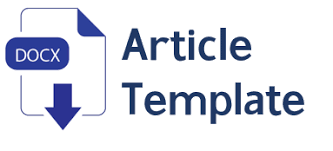Dinamika Perundingan Damai: Efektivitas Mediasi Internasional Dalam Konflik Sudan Selatan
Keywords:
South Sudan conflict, peace building, mediator roleAbstract
After the independence referendum, South Sudan was in a state of political destabilization that brought it back into conflict. This conflict began with a sense of dissatisfaction with the political elite of the government by an ethnic group in South Sudan. However, over time this conflict then spread into open conflict until it triggered a civil war. This made the international community such as the United Nations, IGAD and several countries provide their involvement to find peaceful efforts in the South Sudan conflict. This research will analyze the role of the UN, IGAD and several countries in finding conflict resolution in the South Sudan conflict. By using the framework of conflict, liberal institutionalism and peacebuilding, the research shows that a conflict will find a peaceful solution if the interests of the parties involved in the conflict are well accommodated. In this case, the mediator role of IGAD in particular, has a key role in the South Sudan conflict.
References
Aalen, L. (2021). South Sudan: Steps Towards Peace Given in New Agreement. Journal of Peace Research, 58(4), 520-530.
Action, C. f. (2025, March 21). Center for Prevention Action Organization. Retrieved from Center for Prevention Action Web site: https://www.cfr.org/global-conflict-tracker/conflict/civil-war-south-sudan
Afriyie, F. A. (2020). Comprehensive analysis of South Sudan conflict: determinants and. Journal of Liberty and International Affairs, 6(1), 33-47.
Collier, P. (2007). The bottom billion: Why the poorest countries are failing and what can be done about it. Oxford: Oxford University Press.
Creswell, J. W. (2014). Research Design: Qualitative, Quantitative, and Mixed Methods Approaches (4th ed.). New York: SAGE Publication.
Cross, I. C. (2022). International Committee of the Red Cross. nternational Committee of the Red Cross. Retrieved from International Committee of the Red Cross Web site.
Gai, P. G. (2025). Revitalized Agreement on The Resolution of Conflict in South Sudan: Reflecting Success, Failure and Potential Consequences. IOSR-Journal Of Humanities And Social Science, 2(3)17-29.
Group, I. C. (2014). South Sudan: A Civil War by Any Other Name. Brussel: International Crisis Group.
Heiss, T. J. (2018). Liberal Institutionalism. In T. G. Wilkinson, International Organization and Global Governance (pp. 123-134). London: Routledge.
Idris, M. F. (2022). Liberal Institutionalism Theory Approach in ASEAN's Security Cooperation through Regionalism. Akademika, 92(1) 73-86.
Knopf, K. A. (2016). Emdig South Sudan's Civil War. New York: Council on Foreign Relations: Center for Preventive Action.
Koos, C. a. (2014). South Sudan‟s newest war: When two old men divide a nation. South Sudan‟s newest war: When two old men divide a nation. GIGA Focus International Edition English.
Lederach, J. P. (1998). Building Peace: Sustainable Reconciliation in Divided Societies. Washington DC.: United States Institute of Peace Press.
Lindsay, J. (2019). Mediation, Credibility, And Conflict Resolution in South Sudan. International Journal of Conflict Management, 30(2) 145-162.
Organization, A. C. (2019). Africa Center for Srategic Studies. Retrieved from Africa Center Organization Web site: https://africacenter.org/wp-content/uploads/2019/12/Timeline-of-South-Sudan-Peace-Agreements-and-Violence-printable.pdf
Policy, F. (2014, February 24). Foreign Policy. Retrieved from Foreign Policy Web site: ttps://foreignpolicy.com/2015/02/24/u-s-threatens-south-sudan-with-sanctions-again
Reimer, L. S. (2015). Transformative Change: An Introduction to Peace and Conflict Studies. Lexington Books.
Studies, H. I. (2019, February 1). HORN Institute Organization. Retrieved from HORN Institute Organization Web site: https://horninstitute.org/wp-content/uploads/2019/08/No.-17.-The-Revitalized-Agreement-for-Resolution-of-Conflict-in-South-Sudan-R-ARCSS-1.pdf
Yusuf Kiranda, M. K. (2016). Conflict and State Formation in South Sudan: The Logic of Oil Revenues in Influencing the Dynamics of Elite Bargains. Journal On Perspective of African Democracy & Development, 1(1) 30-40.
Downloads
Published
How to Cite
Issue
Section
License

This work is licensed under a Creative Commons Attribution 4.0 International License.
This is an open-access journal. All works are published under the Creative Commons license CC-BY which means that all content is freely available at no charge to the user or his/her Institution. Users are allowed to read, download, copy, write, improve, and create derivative creation even for other lawful purposes, this license permits anyone to, as long as they cite and license the derivative creation under similar terms

This work is licensed under a Creative Commons Attribution 4.0 International License.




